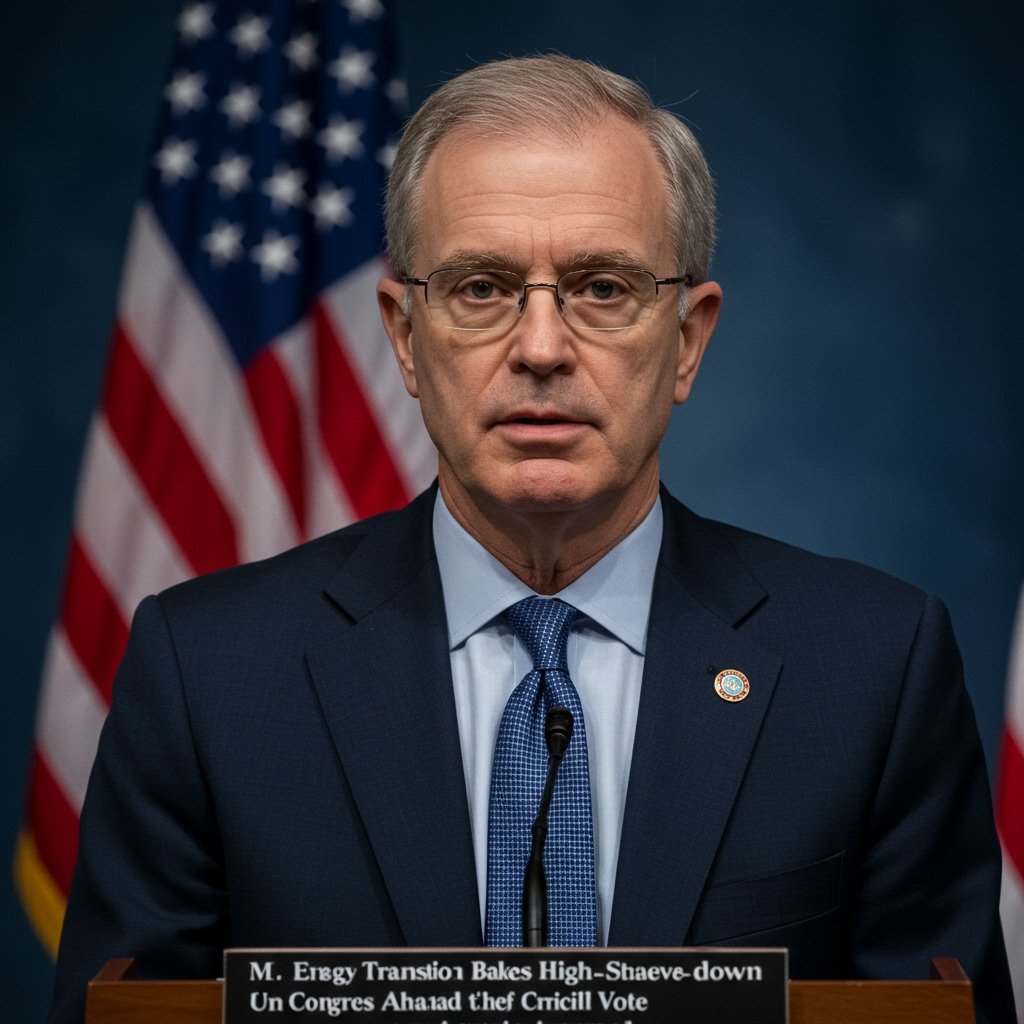Clean Energy Transition Act Reaches Critical Juncture
The fate of the landmark Clean Energy Transition Act (CETA) hangs precariously in the balance on Capitol Hill, as intensive lobbying efforts and frantic, last-minute negotiations consume Congress ahead of a pivotal procedural vote expected this week. The legislation, designed to accelerate the nation’s shift towards cleaner energy sources, represents perhaps the most significant energy policy proposal to reach this stage in years, carrying implications that could reshape the American economy and its environmental footprint for decades.
Intense Lobbying Campaign Underway
The days leading up to the anticipated vote have seen a surge in lobbying activity, with powerful interests converging on congressional offices. Reports indicate that top executives from major oil and gas firms have been holding private meetings with Republican leaders, articulating concerns about potential impacts on traditional energy sectors, job losses, and energy security. Their arguments often focus on the economic costs of the transition and the need for a more gradual approach that incorporates existing energy infrastructure.
Conversely, renewable energy advocates and prominent environmental groups have intensified their pressure campaigns on Capitol Hill. They are actively engaging with key Democrats and targeting moderate Republicans whose votes could be decisive. These groups emphasize the urgency of addressing climate change, the potential for job creation in green industries, and the long-term economic benefits of investing in renewable technologies like solar, wind, and battery storage. They argue that CETA is essential for U.S. competitiveness in the global clean energy race.
Behind Closed Doors: The Search for Compromise
The intense public and private pressure reflects deep ideological and economic divisions within Congress. Sources close to Senate leadership have revealed that complex, closed-door talks are underway in an attempt to bridge these gaps and forge a bipartisan path forward. At the heart of these sensitive discussions are Senators Smith (D-CA) and Senator Johnson (R-TX), who are reportedly leading the effort to find a viable compromise.
The primary sticking points in these negotiations revolve around key provisions within the bill, most notably carbon capture credits and renewable energy tax incentives. Proponents of carbon capture technology, often supported by fossil fuel interests and some Republicans, argue that robust credits are necessary to make emission reduction economically feasible for traditional energy sources, allowing for a smoother transition. Environmental groups and many Democrats, while not entirely opposed to carbon capture, are wary of it becoming a loophole that slows the adoption of truly renewable sources and are pushing for stronger, more immediate incentives for solar, wind, and other clean technologies.
The structure, duration, and value of renewable energy tax incentives are also major points of contention. Democrats and renewable advocates seek long-term, stable incentives to provide certainty for investment and deployment. Some Republicans and traditional energy allies express concerns about the cost to taxpayers and potential market distortions, advocating for less generous or shorter-term incentives, or linking them more directly to performance metrics.
High Stakes for the Future of Energy
The procedural vote expected this week is seen as a critical test of political will in a deeply divided Congress. Its outcome could effectively determine whether CETA proceeds towards potential passage or is stalled, potentially indefinitely. Beyond the immediate legislative battle, the bill’s success or failure is viewed as a barometer for the nation’s commitment to a clean energy future and could significantly influence where billions in future investment are directed – either towards scaling up renewable infrastructure and related technologies or maintaining a larger role for traditional energy sources, albeit with potential emission controls.
The negotiations led by Senators Smith and Johnson represent a last-ditch effort to find common ground on issues that have historically polarized Washington. Whether they can craft a compromise on carbon capture credits and renewable energy tax incentives that satisfies enough members from both sides of the aisle remains uncertain. The coming days are poised to be decisive, with the future trajectory of U.S. energy policy and investment hanging in the balance.





